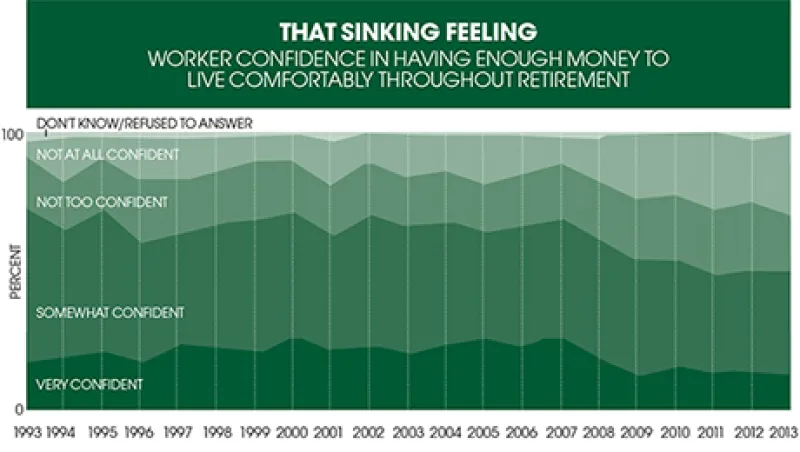
Pension Plan Sponsors Remain Wary of Annuities
Although employees want guaranteed income solutions, defined contribution plan sponsors fear the legal risks of offering such benefits.
Maureen Nevin Duffy
December 9, 2013


